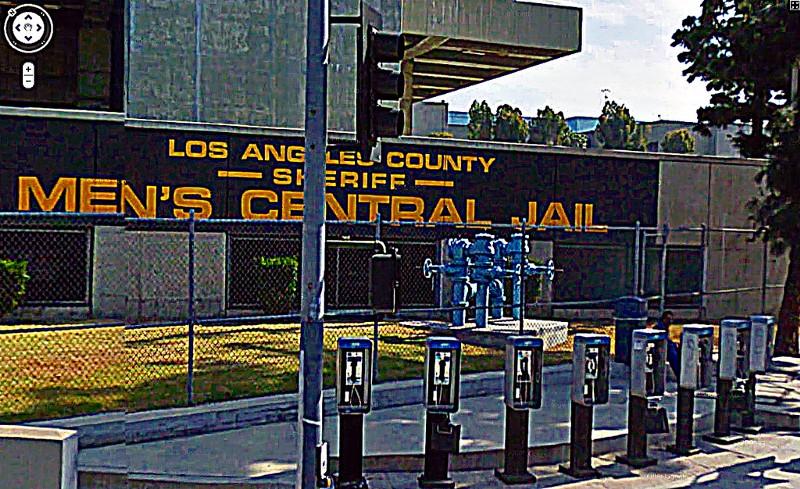Plans for new Los Angeles jail frustrate criminal justice reform advocates
A planned jail expansion in Los Angeles has generated intense opposition and protest from civil rights and criminal justice reform organizations. Last month, 100 protestors challenged the city Board of Supervisors to redirect funds earmarked for new locked facilities toward community services and other “alternatives to incarceration.” The Los Angeles Board of Supervisors first approved the plan to […]

A planned jail expansion in Los Angeles has generated intense opposition and protest from civil rights and criminal justice reform organizations.
Last month, 100 protestors challenged the city Board of Supervisors to redirect funds earmarked for new locked facilities toward community services and other “alternatives to incarceration.”
The Los Angeles Board of Supervisors first approved the plan to allocate $2 billion to build a 3,885-bed jail to replace the 5,276-bed Men’s Central Jail, located downtown, in 2015. The plan also calls for the construction of a 1,600-bed women’s facility to replace the current women’s lockup in Lynwood.
Critics maintain that there are far better ways to spend what they believe will ultimately be a $3.5 billion investment by the city in these proposed replacements.
“We can find $3.5 billion to build more jails, but we can’t find money for schools. We can find money for Olympics, but we can’t find money for parks,” said Greg Akili of Black Lives Matter, one of the groups leading the charge against the proposed expansion. “If you’ve got $3.5 billion, invest it in the people.”
Jayda Rasberry of the Los Angeles based grassroots group Dignity and Power Now agrees: “These beds represent trauma, torture, embarrassment, isolation, shame and death.”
Los Angeles Sheriff Jim McDonnell and District Attorney Jackie Lacey both support the proposed new facilities, arguing that they will lead to improved treatment of mentally ill inmates. Lacey told the Los Angeles County Board of Supervisors that the replacement jail “will allow us to treat them more humanely, provide more resources for them.” Current estimates put the mentally ill population at approximately 20% of the 17,000 people incarcerated in Los Angeles.
Critics of the new facilities do not disagree that the Men’s Central Jail is old, decrepit, overcrowded, and long overdue for closing. But they question spending public money on another locked facility. Natalie Pifer, an assistant professor of criminology at the University of Rhode Island, told In Justice Today that city officials should consider a “better way to care for the mentally ill,” one that is “done outside of the carceral setting.”
Moreover, Patrisse Cullors, a Los Angeles native and a founder of Black Lives Matter, argues that the city should impose a moratorium on all new jail construction until it has a better grasp on the impact of recent state-level criminal justice reforms. These include proposals to overhaul the bail system, re-classify some offenses from felonies to misdemeanors, and early release measures — all of which will likely decrease the city’s overall incarcerated population.
“What we should be doing,” Cullors maintains, “is getting a clear understanding of who’s in our jails and investing in their health and well-being instead.”
Keramet Reiter, an assistant professor of criminology at the University of California, told In Justice Today that, in one respect, she believes the proposed jail represents an improvement because it houses fewer inmates than the old one.
“Any reduction of bed space is good,” she said.
But Reiter conceded that moving forward to build the jail would, in effect, bring to an abrupt halt the larger public discussion about city investment priorities.
“It will be a long time before we have this debate again,” Reiter said.
